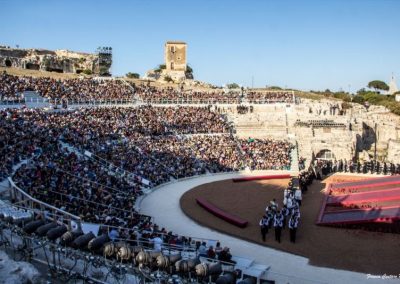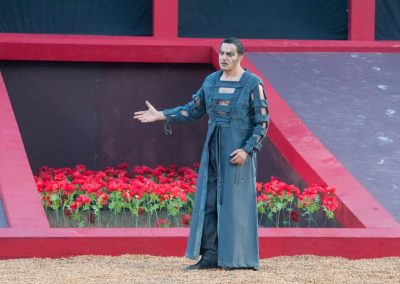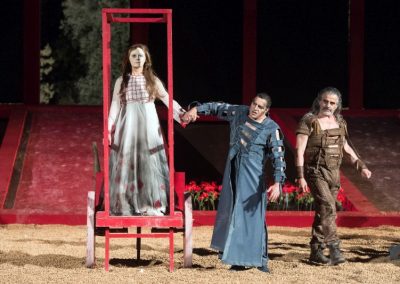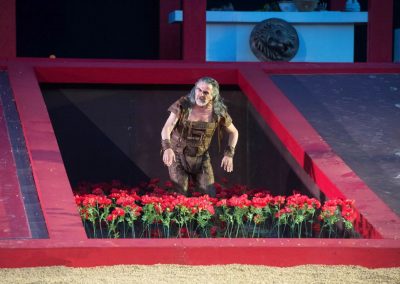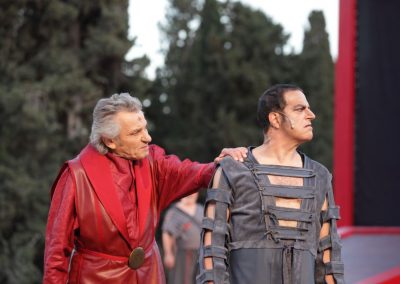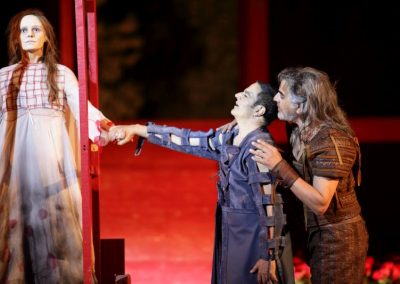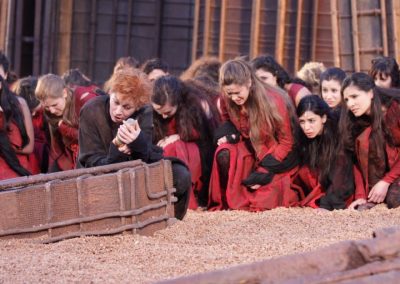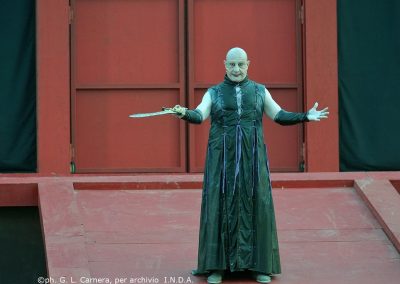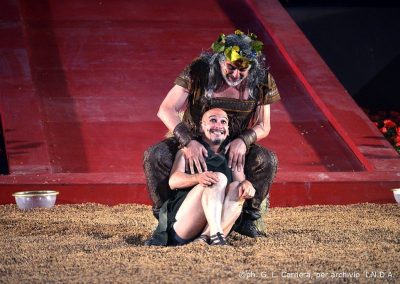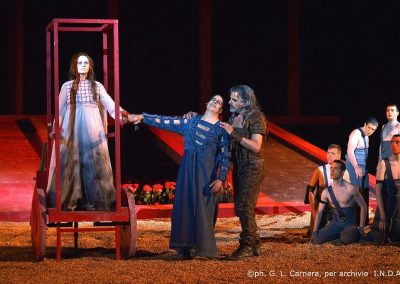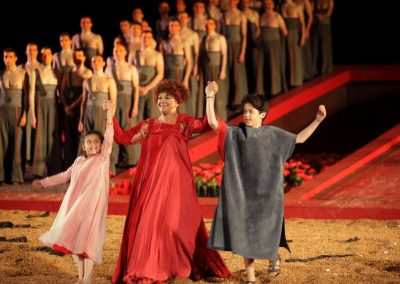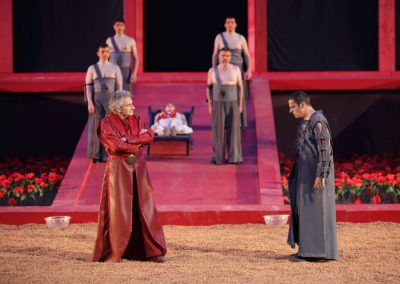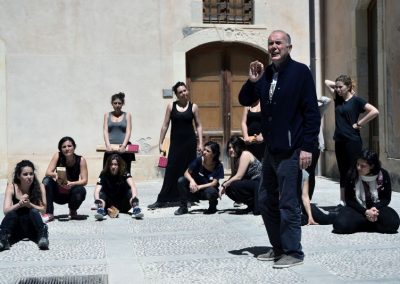ALCESTI
Work of | Euripide
Translation | Maria Pia Pattoni
Direction | Cesare Lievi
Scene and costumes | Luigi Perego
Music | Marcello Panni
Direction of choir and musical instruments | Salvatore Sampieri
Stage manager | Enzo Campailla
STORY
In the meantime he arrives at Palazzo Eracle, intent on one of the twelve labors, to ask for hospitality. Admetus welcomes him generously, while not hiding his affliction from him, so much so that he is forced to explain to him why. He tells the hero that a woman who lived in the house, but was not related, has died, so as not to make him uncomfortable, while somehow hiding the truth of the facts. It will be the intervention of a servant to reveal to Heracles the true identity of the dead “non-consanguineous” woman. The hero, strongly repentant, thus decides to go to Hades to bring her back to life. Heracles returns to Admetus with a veiled woman, pretending to have “won” her at public games, to test her loyalty. Admetus, initially, is almost horrified to touch her, convinced that it is someone else, and agrees to look at her only to please his guest. Removed the veil, it turns out that the woman is Alcestis, now restored to the affection of her loved ones. Heracles explains to Admetus that the woman is not allowed to speak for three days, the time needed to be “desecrated” to the underworld.

CAST
Apollo | Massimo Nicolini
Tanàto | Pietro Montandon
Servant | Sergio Mancinelli
Handmaid | Ludovica Modugno
Alcesti | Galatea Ranzi
Heracles | Stefano Santospago
Feréte | Paolo Graziosi
Admeto | Danilo Nigrelli
Corifei | Mauro Marino, Sergio Basile
Eumelo | Tancredi Di Marco
Daughter of Alcestis | Mirea Bramante


